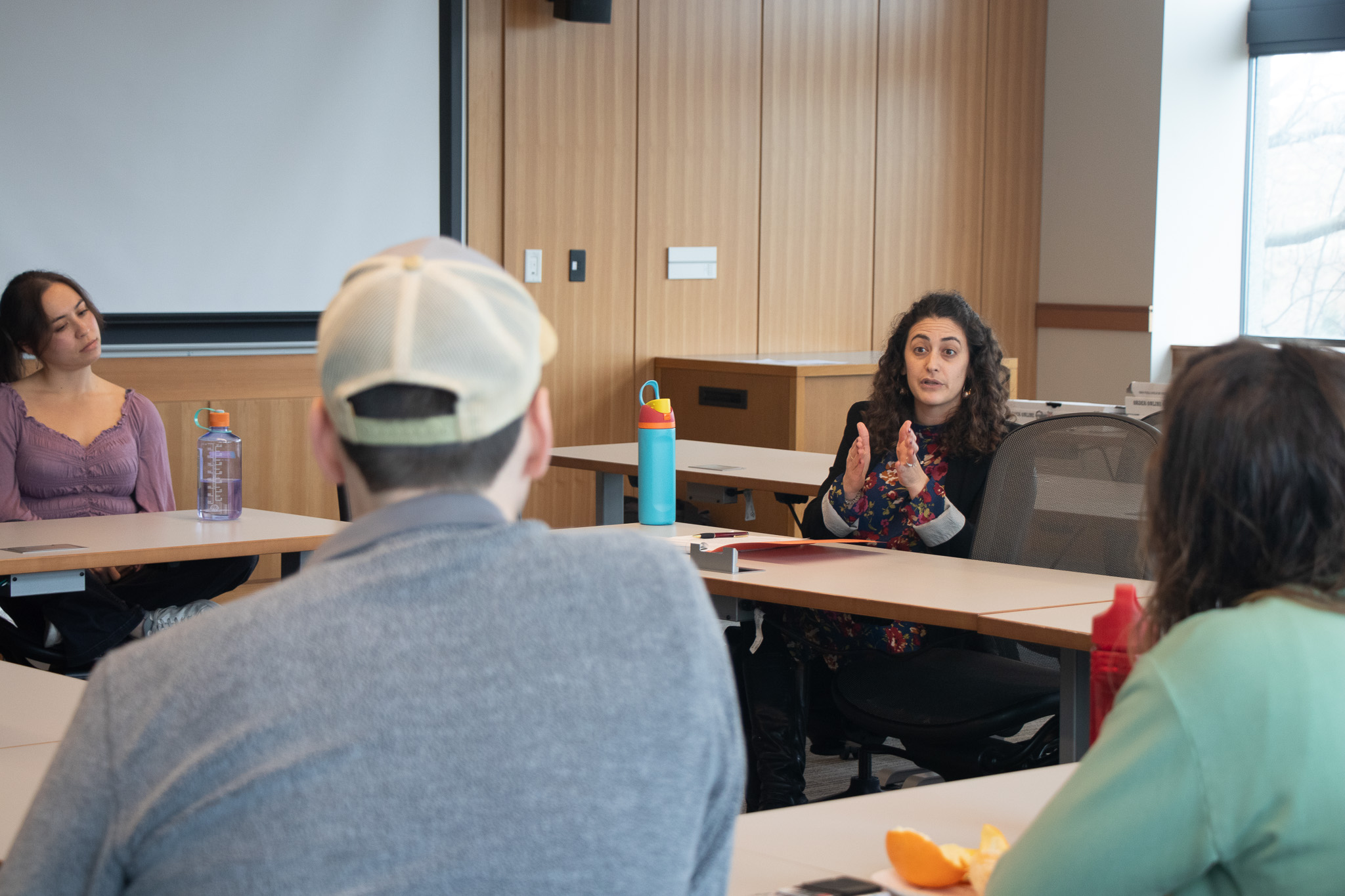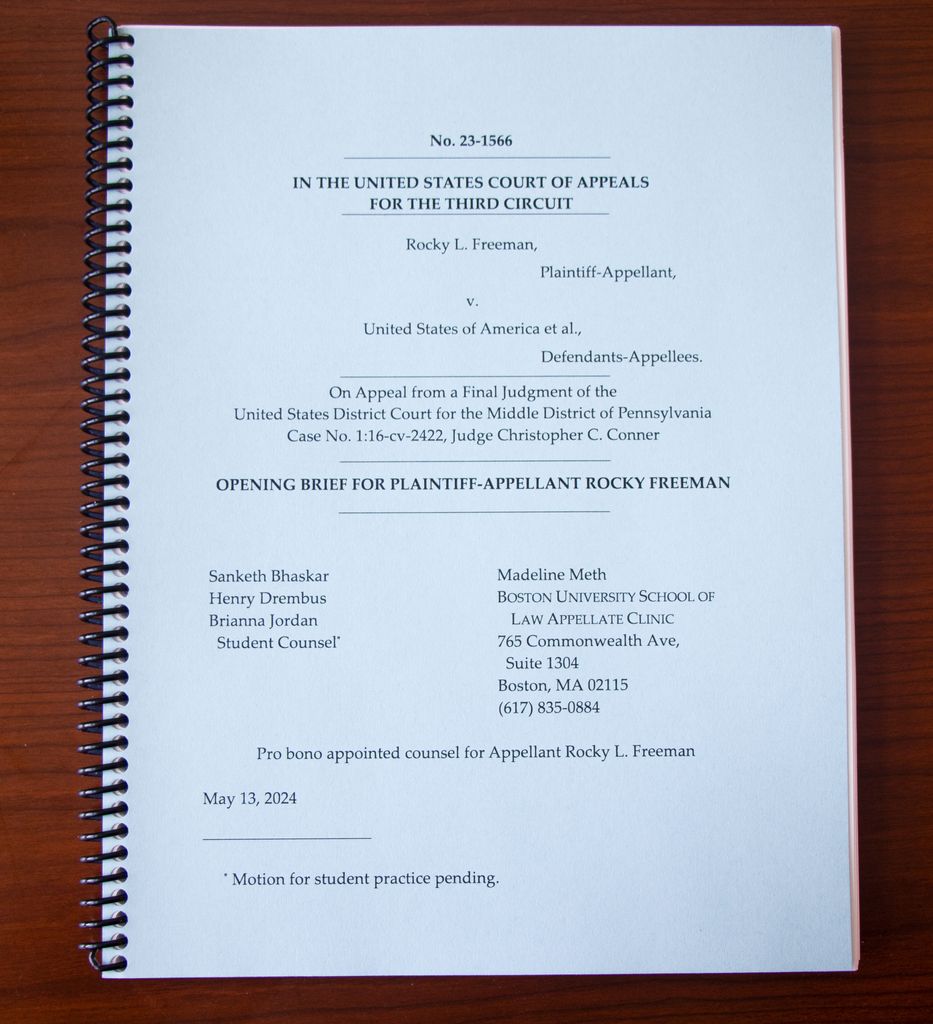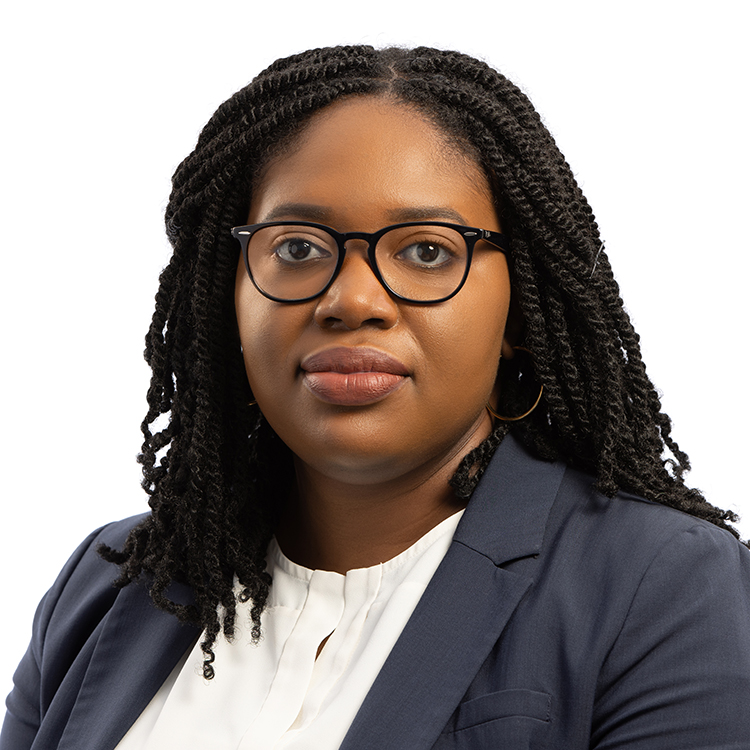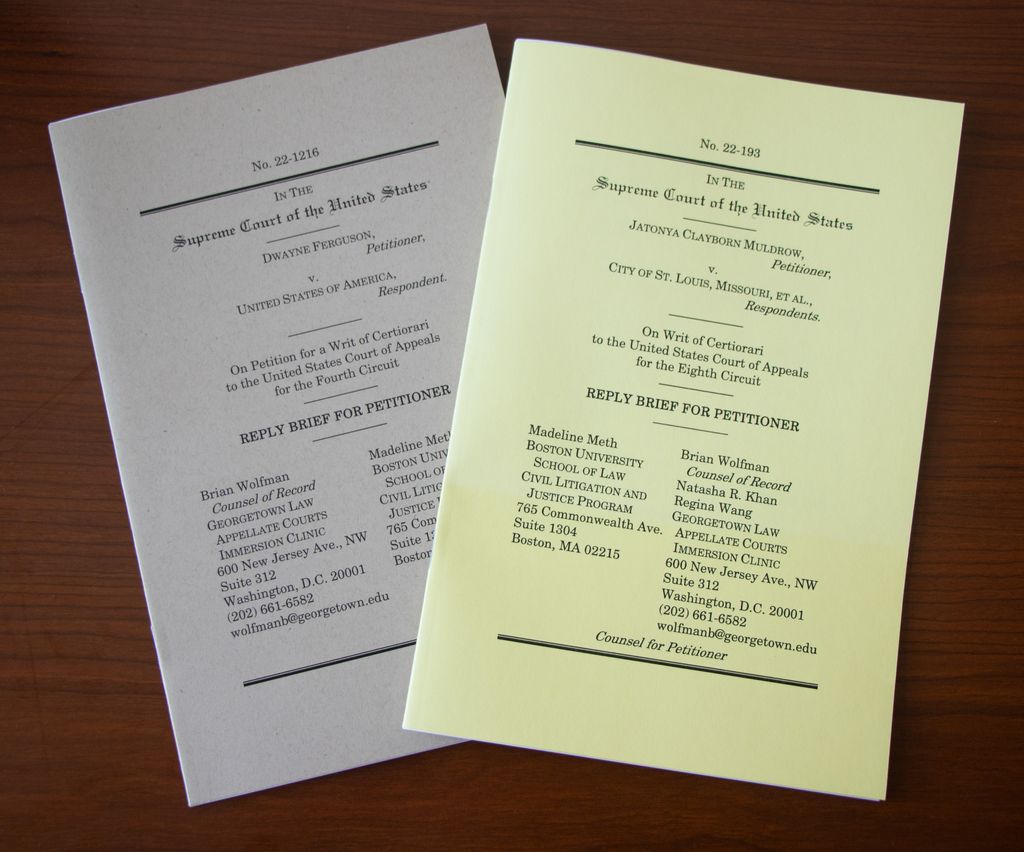Expanded Experiential Education Offerings
Two new clinics led by Jade Brown and Madeline Meth have launched in the Boston University Civil Litigation & Justice Program.

Professor Madeline Meth with clinic students.
Expanded Experiential Education Offerings
Two new clinics led by Jade Brown and Madeline Meth have launched in the Boston University Civil Litigation & Justice Program.
For nearly two decades, Rocky Freeman was subject to harsh conditions in a dangerous federal penitentiary due to an error in his pre-sentence report. While the Probation Office knew the information was incorrect, it never amended the report. As a result, Freeman maintains that he spent years subject to conditions of confinement that he would not have otherwise experienced. Since learning about this negligence, Freeman has sought to represent himself in court to remedy the harms he suffered, but has so far been unsuccessful.
Last spring, a pilot of BU’s Appellate Clinic within the Civil Litigation & Justice Program was appointed to represent Freeman in the US Third Circuit Court of Appeals. Clinical Associate Professor Madeline (Maddie) Meth and several students wrote an opening brief for Freeman and will continue to work with him as part of the newly launched Appellate Clinic.

The Appellate Clinic officially launched this fall as part of two new clinics under the Civil Litigation & Justice Program. The second addition, the Consumer Economic Justice Clinic, will be taught by Professor Jade Brown (’16). The Appellate and Consumer Economic Justice clinics are year-long experiential programs, offering students the opportunity to take the lead on court cases under the supervision of faculty experts. These new clinics round out the Civil Litigation & Justice Program, which also includes the Access to Justice Clinic, taught by Professor Naomi Mann, and the Civil Litigation Clinic taught by Professor Constance Browne, which combines the work of the former Individual Rights Litigation and Employment Rights clinics.
“We strive in the Civil Litigation and Justice Program to continually innovate, including creating new ways to assist those whose voices are so often silenced or ignored in our legal system,” says Professor Naomi Mann, executive director of the Civil Litigation and Justice Program.

For many law students, clinic work is the first hands-on student attorney experience of their legal education. It is a time to apply what was learned in the classroom and work on cases with experienced faculty to explore potential post-graduate areas of interest. “I think that was what really started the whole trajectory of my career,” says Jade Brown (’16), clinical associate professor of law and former BU Law Civil Litigation Clinical student. “Taking the clinic at BU was eye-opening. It was like, ‘Okay, this is why I came to law school. This is what I want to do.’”
I think for any student, clinic is a great opportunity to really delve in and see what the practice of law entails.
In Brown’s Consumer Economic Justice Clinic, students will primarily work on issues involving debt collection, credit reporting, unfair and deceptive business practices, and other areas related to economic justice. As part of their clinic work, students will have the chance to participate in the Greater Boston Legal Services’ (GBLS) Consumer Debt Lawyer for the Day programs, where they will visit local courthouses to help unrepresented clients. “We’re going to be primarily focused on cases that create barriers for certain underrepresented communities, especially minority and low-income people,” says Professor Brown. “We will be figuring out how we can work towards lifting some of those economic barriers.”
The work done in the former consumer debt practicum focused on representing clients in the Brighton and Roxbury municipal courthouses. “I actually helped to start the Roxbury Lawyer for a Day Program when I worked at GBLS,” says Professor Brown. “So bringing law students to that court was a full circle moment.” Through the Lawyer for the Day Program, practicum students successfully resolved cases, securing both dismissals and settlements for their clients. With the expanded full-year Consumer Economic Justice Clinical offering, students can apply their legal skills to a wider range of cases. “For a lot of students, this is the first time that they’re demonstrating practice-ready skills,” says Brown. “Like meeting with a client, drafting an email to an opposing attorney, interacting with the courts, writing settlement agreements, negotiating… It really builds on those foundational classes.”
In the Appellate Clinic, students are trained to be effective appellate advocates in a wide range of public interest cases. “We’re generalists when it comes to areas of the law,” says Professor Meth. “We have civil rights cases that span from prisoner civil rights to school civil rights, to employment discrimination… all over the map. But the thread between them is that they’re all in appellate courts, either in courts of appeals, federal or state, or in the Supreme Court or state supreme courts.”
Students working under Professor Meth’s supervision also had the opportunity to work on reply briefs at the cert stage in the Supreme Court. Now that the clinic has launched for a full academic year, Professor Meth hopes that students experience seeing a case through its lifecycle from opening briefs to reply briefs to arguments.

“We represent public-interest clients who tend to be vulnerable individuals suing a corporation, the Government, or another institution with a lot of resources,” says Professor Meth. “I like to tell the students that we represent the Davids in the David versus Goliath story.”
Looking toward the future of these new clinics, Professors Brown and Meth want students to feel passionate and effective in the work they do, and to take advantage of these programs to learn more about areas of the law. “I think clinic for me was where I found my voice and felt like, ‘I’m capable of doing this work; this is my calling,’” says Professor Brown. “I think for any student, clinic is a great opportunity to really delve in and see what the practice of law entails.”